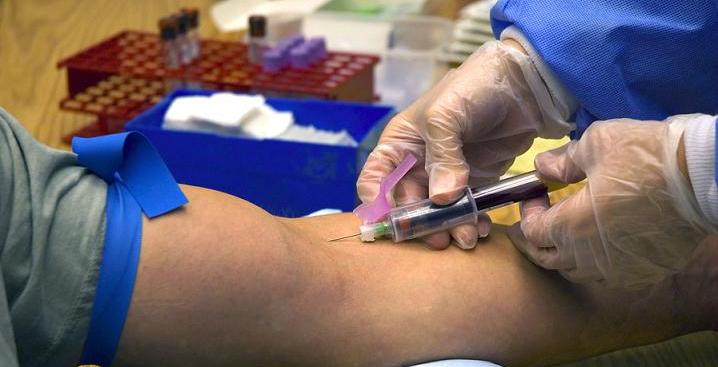Ultimate Guide to Passing the NHA Phlebotomy Certification Exam: Tips, Requirements, and Strategies
Embarking on a journey to become a certified phlebotomist is an exciting step toward a rewarding healthcare career. The National Healthcareer Association (NHA) Phlebotomy Certification Exam is a critical milestone for aspiring phlebotomists, validating your skills and knowledge in blood collection and patient care. Weather you’re a newly graduated healthcare student or a professional looking to enhance your credentials, this comprehensive guide will equip you with essential tips, clear requirements, and proven strategies to pass the NHA Phlebotomy Certification exam with confidence.
understanding the NHA Phlebotomy Certification Exam
What Is the NHA Phlebotomy Certification?
The NHA Phlebotomy Certification validates your competence as a professional responsible for collecting blood specimens from patients. It enhances job prospects, professional credibility, and opens doors to advanced healthcare roles.
Who Is Eligible to Take the Exam?
To qualify for the NHA Phlebotomy Certification Exam, candidates typically need to meet these criteria:
- Completion of a formal phlebotomy training program (usually at least 40 hours)
- Accredited blood collection experience (clinical practice)
- High school diploma or equivalent (GED)
Exam Format and Content Overview
The exam consists of 80 multiple-choice questions covering essential areas such as blood collection procedures, safety protocols, patient interactions, and legal/ethical considerations. You are allotted 2 hours to complete it.
Key Topics Covered
| Topic | Description |
|---|---|
| Blood Collection Techniques | Venipuncture, capillary puncture, and device usage |
| Safety and Infection Control | Proper sterilization, PPE, and handling of sharps |
| Patient Interaction | Communicating effectively, patient identification, and comfort measures |
| legal and Ethical Issues | Privacy, consent, and professional responsibilities |
| Equipment and Supplies | Use of vacutainers, needles, and labeling protocols |
Prerequisites and Preparation Requirements
Before sitting for the exam, ensure you’ve met all eligibility criteria, including completing an accredited phlebotomy training program. Keep documentation of your clinical hours and training completion, as these might be necessary during registration.
Essential Tips for Passing the NHA Phlebotomy Certification Exam
Preparing for the exam requires strategic planning. here are some practical tips to maximize your chances of success:
- Create a Study Schedule: Allocate regular study sessions covering all exam topics to enhance retention.
- Use Official and supplementary Study Materials: Review the NHA exam content outline, textbooks, practice exams, and flashcards.
- Take Practice Tests: Simulate exam conditions to identify weak areas, improve time management, and build confidence.
- Focus on Safety and Patient Care: As these are core components, dedicate extra time to understanding infection control, PPE, and patient interaction techniques.
- Join Study Groups or Forums: Collaborate with peers to exchange knowledge and clarify doubts.
Effective Strategies to Ace the NHA Phlebotomy Exam
Beyond basic tips, implementing smart strategies can make a important difference:
- Understand the Exam Structure: Familiarize yourself with question formats and key areas to prioritize your review sessions.
- Employ the Process of Elimination: Narrow down options by dismissing obviously incorrect answers.
- Stay Calm and Focused: Practice relaxation techniques to manage exam-day anxiety.
- Read Questions Carefully: Pay attention to keywords and specific instructions to avoid misinterpretation.
- Review Your Answers: If time permits, revisit questions to correct any mistakes or confirm answers.
Common Challenges and How to Overcome Them
Many test-takers face challenges such as time management, understanding complex procedures, or anxiety.Here’s how to tackle these issues:
- Time Management: Practice with timed mock exams to improve your pacing.
- Understanding Procedures: Use visual aids, videos, or hands-on practice to reinforce skills.
- Reducing Anxiety: Develop a pre-exam routine, ensure proper sleep, and maintain a positive mindset.
Benefits of certification and Career Opportunities
Achieving the NHA Phlebotomy Certification opens numerous doors, including:
- Higher employability and job stability
- Potential for higher wages
- Opportunities to work in diverse healthcare settings such as hospitals, labs, outpatient clinics, and physicians’ offices
- Pathways to advanced certifications and roles in healthcare
First-hand Experience and Case Study
Consider the story of Sarah, a recent graduate who prepared diligently using practice exams and study groups.She dedicated two months to studying, focused heavily on safety procedures, and practiced venipuncture techniques repeatedly. On exam day, she remained calm and confidently answered the questions. Sarah passed on her first attempt and secured a position at a reputable medical lab, illustrating how proper preparation directly impacts success.
Additional Practical Tips for Aspiring Phlebotomists
- Invest in quality study materials, including online courses if possible
- Practice hands-on blood collection techniques regularly
- Attend workshops or seminars offered by accredited organizations
- Maintain professionalism and positive attitude during clinical practice
Conclusion
Passing the NHA Phlebotomy Certification Exam is a significant accomplishment that requires dedicated preparation, strategic studying, and confidence in your skills. by understanding the exam structure, meeting all prerequisites, utilizing effective study techniques, and gaining hands-on experience, you increase your chances of success. Remember, every step toward certification is a move closer to a fulfilling career in healthcare. Stay motivated, practice consistently, and approach the exam with a positive mindset - you’ll be celebrating your achievement sooner than you think!
